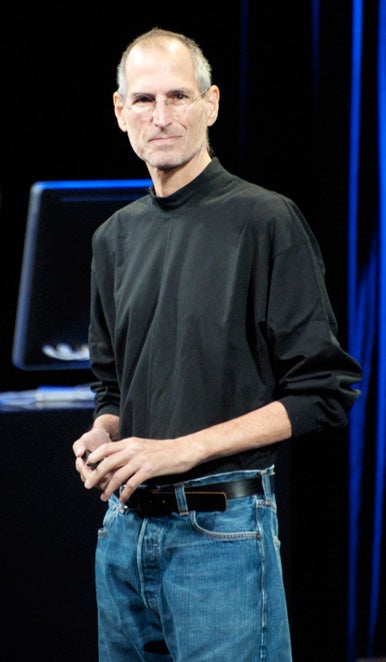An earthquake rattles Washington, D.C., and a fierce storm ravages the East Coast. Is God speaking to us?
I’m not a doomsday prophet, and I don’t believe every hurricane, earthquake or drought is God’s judgment. But I did pause to ponder the significance of the freakish 5.8-magnitude quake that jolted the East Coast last week. The White House was evacuated, the Washington Monument was closed indefinitely because of cracks, and the National Cathedral’s central tower was seriously damaged.
Does anybody else find that slightly spooky?
“I hope President Obama and the leaders of both political parties in Washington are heeding the ominous signs of the times. And I pray they don’t forget the words of another one of our founders, Patrick Henry, who said: 'It is when people forget God that tyrants forge their chains.'”
Atheists and secularists will say it was just a big seismic coincidence. They probably also ignored the fact that a few days after the quake, a massive storm weirdly drifted toward Washington, D.C., and New York City. Hurricane Irene has now been blamed for at least 42 deaths in 12 states, and more than 2.5 million people from North Carolina to Maine were still without electricity Tuesday.
Judgment from God? That’s not how I view disasters. But I do think last week’s double whammy was about as obvious a sign from heaven as when God scribbled a warning on the wall while King Belshazzar was partying in his palace.
Hello? Is anybody reading the handwriting on America’s wall?
In the case of Belshazzar (see Daniel 5:1-31), that clueless king couldn’t decipher God’s cryptic graffiti—so he called a true prophet to decode it. I’m not sure if many American leaders would ask a modern Daniel for counsel. Many of them have divorced themselves and our government from faith in God and His moral standards.
New York’s ultra-secularist mayor, Michael Bloomberg, was certainly in a Belshazzar mood when he announced last week that he was excluding any and all members of the clergy from the city’s commemoration of the 10th anniversary of 9/11. Pastors as well as politicians have blasted Bloomberg for his insensitivity, but he insists that the ceremony will be better without a spiritual tone.
I guess he thinks America doesn’t need God to help us through our worst national crisis in a generation. We can just read some humanistic poems and grieve by ourselves.
According to the joke posted on thousands of Facebook pages last week, the Virginia earthquake was triggered when America’s founding fathers rolled over in their graves. A funny thought, yes, but I don’t think George Washington or Benjamin Franklin would find anything amusing about the state of our country today. And I don’t think they’d be laughing at Mayor Bloomberg’s blatantly tyrannical stance against religion.
The idea of a 9/11 commemoration without prayer is downright sad, especially when you recall that our nation’s founders—as imperfect as they were—built this country on Christian precepts. In today’s secularist climate, people who speak about our founders’ faith are labeled right-wing whackos. Pardon my political incorrectness, but questioning whether many of the founders were Bible-believing Christians is as insulting as denying the Holocaust.
The founders did not hide their faith or apologize for it—and they certainly never legislated against it. Consider these facts (which, thankfully, have not been removed from history books):
- The first prayer in the U.S. Congress was offered in Philadelphia in 1774. George Washington was among those kneeling as other leaders gathered to pray after hearing that British forces had attacked Boston. One observer wrote that the scene “was enough to melt a heart of stone” as he watched tears gush from the eyes of the old patriots.
- During the Continental Congress of 1787, Benjamin Franklin asked that clergy be called in every morning to lead prayers “imploring the assistance of Heaven, and its blessing on our deliberations.”
- George Washington asked citizens in 1789 to “unite in most humbly offering our prayers and supplications to the great Lord and Ruler of Nations, and beseech him to pardon our national and other transgressions.”
- In 1799 President John Adams urged Americans to fast, pray and “call to mind our numerous offences against the most high God, confess them before Him with sincerest penitence” and “implore His pardoning mercy … for our past transgressions.”
Fast forward to the America of 2011, where faith is criticized, believers are mocked and leaders don’t see any need for prayer. It’s a pitiful way to end our legacy.
It will probably take more than a few cracked monuments or damaged cathedral towers to grab the attention of leaders like Mayor Bloomberg. Meanwhile, I hope President Obama and the leaders of both political parties in Washington are heeding the signs of the times. And I pray they don’t forget the words of another one of our founders, Patrick Henry, who said: “It is when people forget God that tyrants forge their chains.”
J. Lee Grady is contributing editor of Charisma. You can follow him on Twitter at leegrady. He will be ministering next week in Lima and Tarapoto, Peru.












